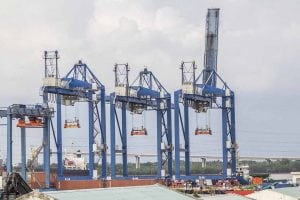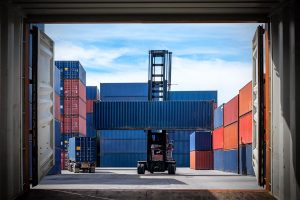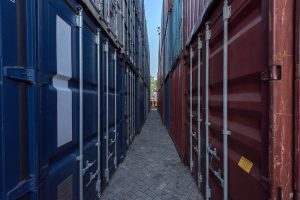
An Ontario group recently looked at market factors shaping the domestic plastics recycling industry in 2017, and it offered predictions about where things are headed.
 Colin Staub was a reporter and associate editor at Resource Recycling until August 2025.
Colin Staub was a reporter and associate editor at Resource Recycling until August 2025.
An Ontario group recently looked at market factors shaping the domestic plastics recycling industry in 2017, and it offered predictions about where things are headed.
 Soaring volumes of scrap plastic and paper shipped to Vietnam have caused growing concern among local officials, who have logged numerous instances of customs violations in recent months.
Soaring volumes of scrap plastic and paper shipped to Vietnam have caused growing concern among local officials, who have logged numerous instances of customs violations in recent months.

Major Vietnam shipping terminals will temporarily stop accepting imports of scrap plastic, citing an overload of the material that has caused backups and delays. The move is a significant development for the global recycled plastics industry, because Vietnam has accepted much more material since China cut off imports.
 The Chinese government provides an option for pre-shipment inspections, and California lawmakers may add language about National Sword into state law. These are among the recent developments as China continues to revise its import regulations and the U.S. recycling industry reacts.
The Chinese government provides an option for pre-shipment inspections, and California lawmakers may add language about National Sword into state law. These are among the recent developments as China continues to revise its import regulations and the U.S. recycling industry reacts.
 Clean PET flake may be allowed into China instead of being considered a waste prohibited from import, according to several sources with knowledge of the situation.
Clean PET flake may be allowed into China instead of being considered a waste prohibited from import, according to several sources with knowledge of the situation.
 An agricultural plastics collection company has expanded substantially in the past year, opening a processing facility in California and growing its collection volumes across the Midwest.
An agricultural plastics collection company has expanded substantially in the past year, opening a processing facility in California and growing its collection volumes across the Midwest.
 China has ratcheted up inspection requirements for recyclables imported from the U.S., requiring every load to be opened for inspection and shutting down the only organization providing pre-shipment approval in the U.S.
China has ratcheted up inspection requirements for recyclables imported from the U.S., requiring every load to be opened for inspection and shutting down the only organization providing pre-shipment approval in the U.S.
 Swedish apparel giant H&M last year saw a notable drop in its consumption of recovered PET for polyester applications. But the company did report progress on marine debris, depolymerization and other initiatives.
Swedish apparel giant H&M last year saw a notable drop in its consumption of recovered PET for polyester applications. But the company did report progress on marine debris, depolymerization and other initiatives.
QRS Recycling has sold its large Kentucky materials recovery facility, leaving the company with one plastic recovery facility and a stake in a manufacturing operation.
 Adding recovered plastics to biomass in a gasification process can increase the quality and volume of the end product, according to an industry-funded study.
Adding recovered plastics to biomass in a gasification process can increase the quality and volume of the end product, according to an industry-funded study.

